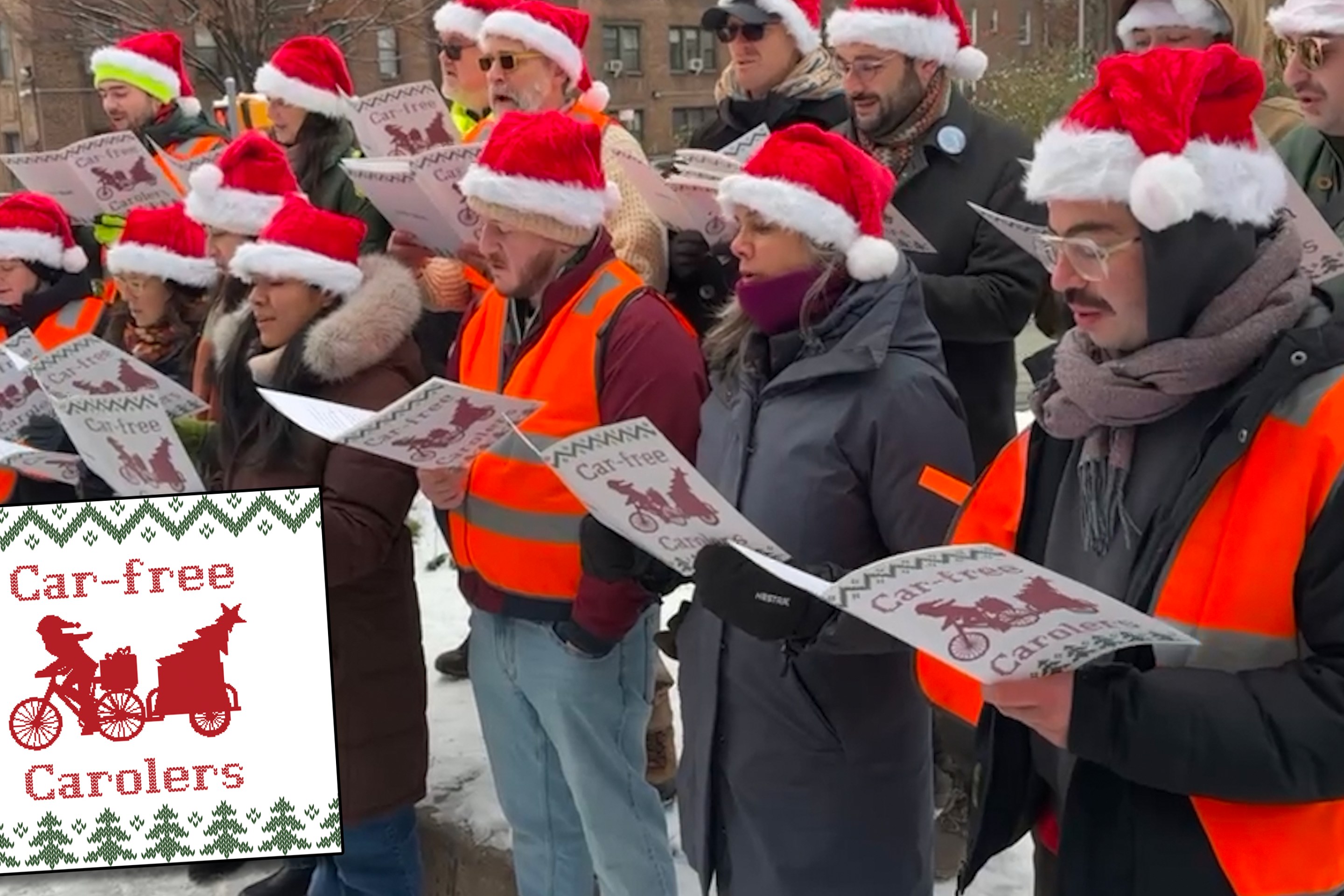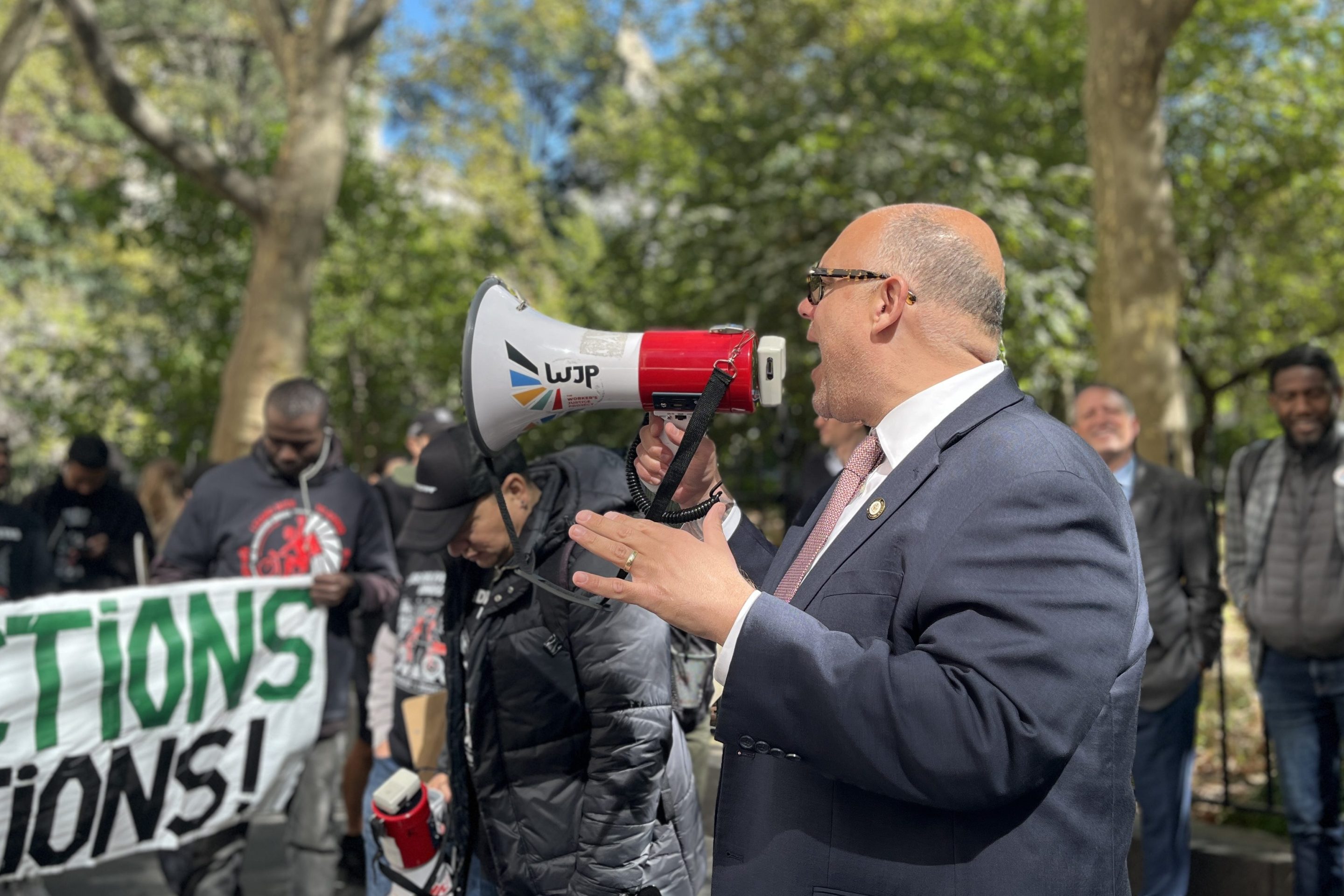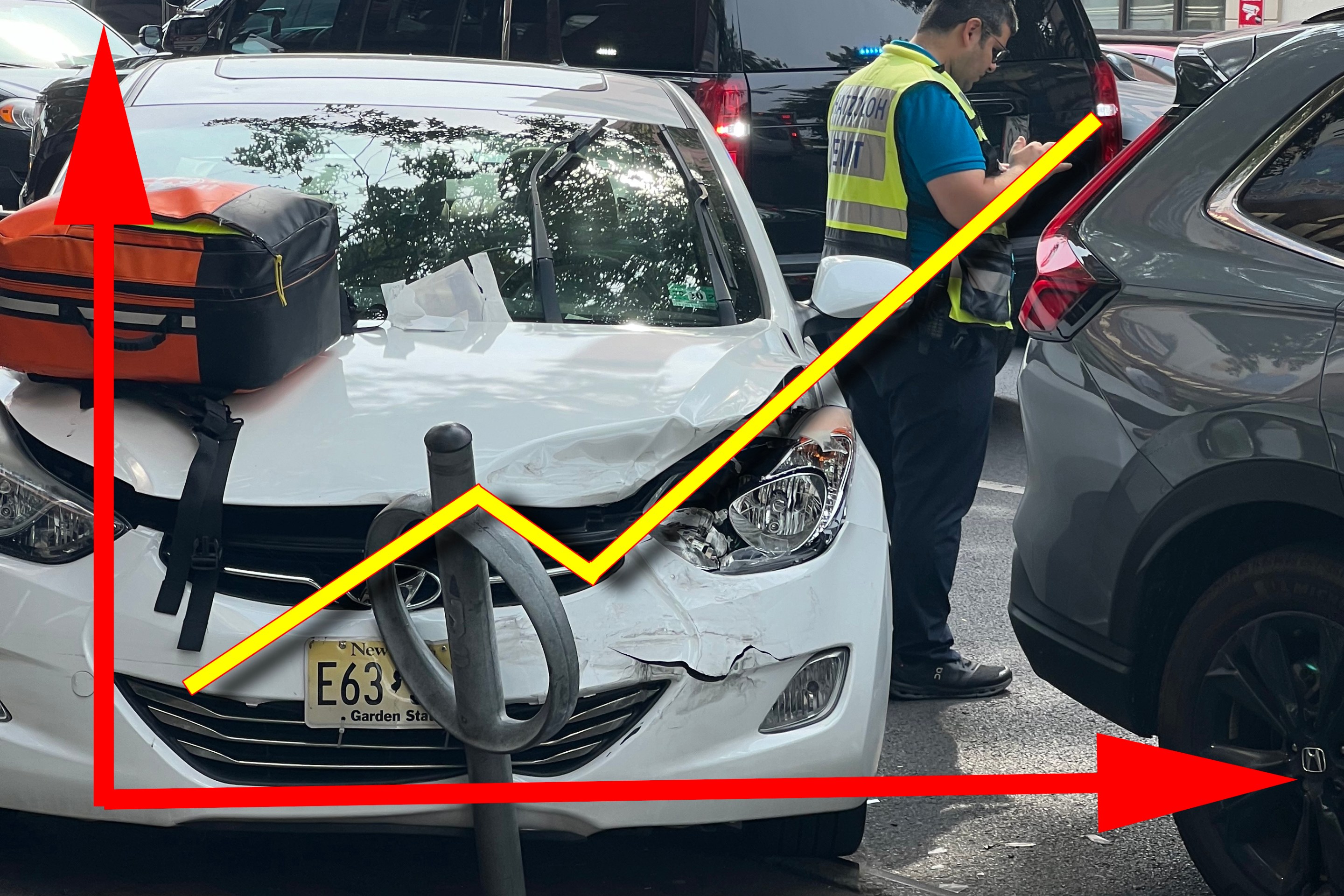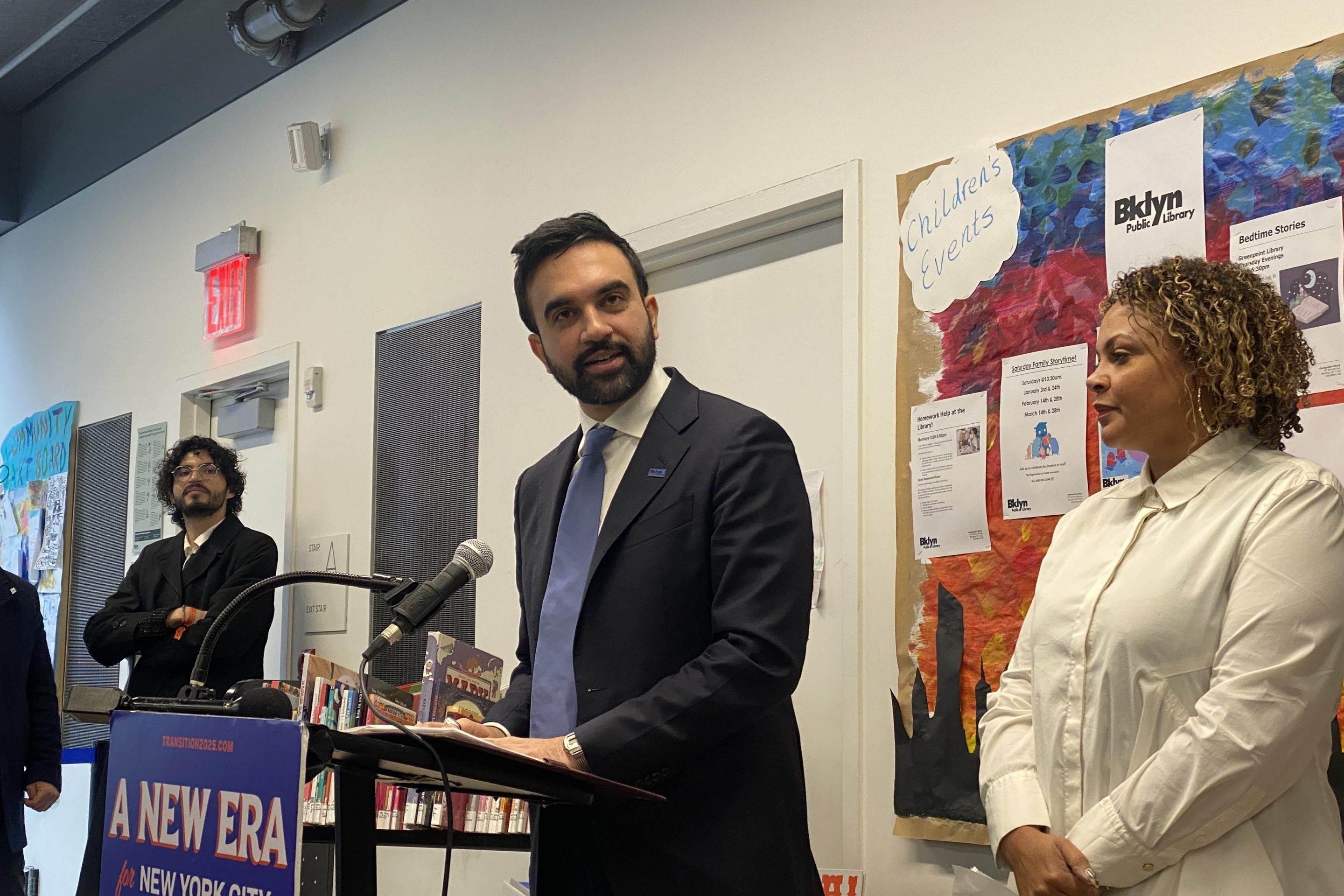If Andrew Cuomo has his way, the state legislature and Governor Paterson will close the state's $315 million shortfall before he takes office. The push from the governor-elect means that in the next two months, New York state's current leadership may again determine whether to close a budget gap by raiding MTA dedicated funds. Nearly $20 million for transit could be on the line.

Paterson has repeatedly stated that he doesn't want to pass the current deficit on to the new administration. "That $315 million needs to be balanced so that the new governor can start on January 1 only dealing with a $9 billion deficit and not any surplus that came from the 2010-2011 budget negotiations," said Paterson in a joint press conference held with Cuomo yesterday.
So far, the current legislature has rejected calls for a special session to deal with the deficit and other Paterson priorities. But at the joint presser, Cuomo added his voice to Paterson's, urging the legislature to fix that $315 million hole before he takes office. "If Governor Paterson leaves a shortfall on the table, it rolls forward to next year and what is already an impossible year with a $9 billion deficit, give or take," said Cuomo. "So if Governor Paterson were to compound next year, that would not be responsible."
That adds some political muscle to Paterson's request. Paterson is a lame duck, but legislative leaders are going to have to deal with Cuomo moving forward. Rejecting Cuomo's call for a special session before January would start Sheldon Silver and John Sampson off on the wrong foot with the incoming governor.
Paterson has proposed closing the $315 million shortfall with a mechanism similar to what the state used earlier this year to make up for a shortfall in federal Medicaid payments. By instituting an across-the-board cut of 1.1 percent to all state programs, that maneuver stripped the MTA of $16.7 million in dedicated revenue. If this new spending cut mechanism is organized the same way, it would cost the MTA another $18.7 million. If legislators don't exempt revenue from the MTA payroll tax, which they spared before, the impact on transit could be about twice as big. Transit advocates and City Council transportation chair Jimmy Vacca have warned state leaders not to hit transit again.
If the state does raid the MTA to plug the current budget gap, it could foreshadow even worse news for straphangers. Any damage inflicted to the MTA's finances by this $315 million state deficit pales in comparison to the potential trainwreck of next year's budget, in which the state is currently $9 billion short.





